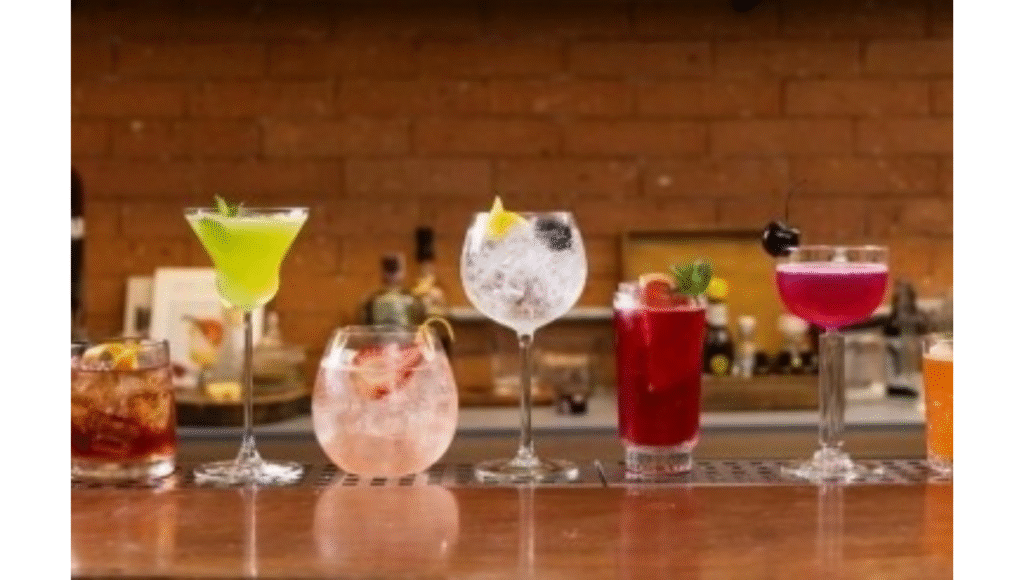
São Paulo Bars Struggle as Methanol Poisoning Crisis
Bars and restaurants across São Paulo, Brazil’s most populous state, are grappling with an unprecedented decline in business following a methanol poisoning crisis that has shaken the alcoholic beverage industry. Establishments fear that sales could fall by as much as 30%, with some venues reporting revenue losses of up to 50% for distilled spirits, including vodka, whiskey, and gin. The sudden slump has left bar owners, restaurant operators, and patrons navigating both public health concerns and economic uncertainty.
The Federation of Hotels, Restaurants, and Bars of the State of São Paulo (Fhoresp) highlighted that consumer confidence in spirits has dramatically dropped in the past week, reflecting widespread fear over adulterated alcoholic beverages. Valderi da Silva, the owner of Amarelinho das Batidas in Itaim Bibi, described the scene vividly: “Demand for spirits is much lower than normal, so much so that sales of these products have dropped 70% in our bar. Even beer sales have declined because there’s almost no public, so overall sales have been affected.”
At Feirinha Bar in Vila Olímpia, floor manager Victor Bertolazzi noticed a similar slowdown, with customers increasingly opting for alternatives to spirits. He reported that while beer sales saw a slight uptick, the overall footfall was significantly lower than usual.
Rising Methanol Poisoning Cases Shake Public Confidence
The crisis has been triggered by a wave of methanol poisoning cases linked to the consumption of contaminated alcoholic beverages. The Ministry of Health of Brazil confirmed 225 suspected poisoning cases, with 192 reported in São Paulo alone. Among these, 14 cases have been confirmed, and 178 remain under investigation. Tragically, 15 deaths have occurred nationwide, including two confirmed in São Paulo.
Health authorities, led by Minister Alexandre Padilha, have urged the public to exercise extreme caution. “Until there’s full clarity on the extent of these crimes, people should refrain from drinking distilled beverages. Avoid spirits, especially if you’re not absolutely sure about the drink’s origin,” he said in a CNN Brazil interview.
In response, the federal government has begun distributing pharmaceutical ethanol, an antidote for methanol poisoning, to states requesting replenishment. Additionally, 12,000 more vials of ethanol and 2,500 units of fomepizole have been secured to bolster the nation’s stockpile for emergency treatment.

Inspections and Seizures Intensify
São Paulo’s state government has ramped up inspections at bars and liquor stores to confiscate potentially contaminated products. Since September 29, over 7,000 bottles have been seized for investigation. Authorities have also provisionally closed 11 establishments to test beverages for methanol contamination.
Governor Tarcísio de Freitas has ordered the cancellation of state registration for businesses found to have sold methanol-tainted drinks, reinforcing the government’s commitment to combating this dangerous counterfeit activity.
Fhoresp’s director of strategic planning, Enio Miranda, emphasized that the crisis affects everyone involved in the hospitality and retail sector. “Establishments, restaurants, bars, and hotels, as well as consumers, are all victims of this counterfeiting process. The government is responsible for combating it, and we are working closely with authorities to ensure firm action,” he said.
Economic and Social Impact
The impact of the methanol crisis extends beyond public health, hitting the financial stability of bars and restaurants across São Paulo. Weekend activity, a crucial revenue period for the hospitality sector, has been particularly affected. With fewer patrons visiting, businesses face both immediate revenue loss and long-term damage to consumer trust.
Experts warn that if the crisis continues, it could ripple through related sectors, including distributors, suppliers, and event venues, further magnifying the economic strain. Many small and medium-sized establishments, heavily reliant on weekend sales, are especially vulnerable.
Moving Forward: Safety and Consumer Awareness
Authorities are focusing on public awareness campaigns, urging consumers to verify the source of alcoholic beverages before consumption. Bars and restaurants are implementing stricter quality checks and sourcing measures to reassure patrons.
While the immediate challenge remains containing the health crisis, the industry hopes that transparency, government intervention, and public vigilance can restore confidence. Business recovery will depend not only on the elimination of contaminated products but also on rebuilding the trust of São Paulo’s nightlife and hospitality patrons.
Conclusion
The methanol poisoning crisis in São Paulo serves as a stark reminder of the delicate balance between consumer safety and economic stability. As bars and restaurants navigate this challenging period, collaboration between government authorities, industry stakeholders, and the public will be essential to ensure both safety and the gradual revival of business. The coming weeks will be critical in restoring confidence in the state’s alcohol market while preventing further tragedies.
Disclaimer:
This article is for informational purposes only and should not be considered medical, legal, or investment advice. Readers are encouraged to follow official public health guidance and consult relevant professionals for any decisions regarding consumption or business operations.





